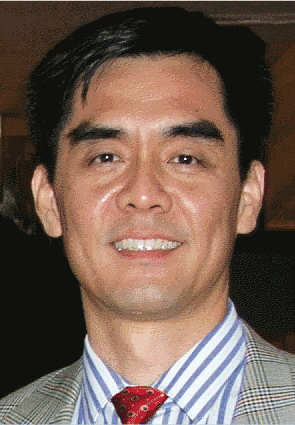In the same study, 9.9% of the 152 patients on MFNS spray reported complete relief from symptoms, 32.9% marked relief, 31.6% moderate relief, and 25.7% reported no relief. This was significantly better than the placebo group, 2.2% of which reported complete relief and 54% no relief.
Explore This Issue
October 2009 Inherited genetic variation appears to be critical but yet still largely unexplained. Identifying the causal genes and variants in nasal polyposis is important in the path toward improved prevention, diagnosis, and treatment of nasal polyps.
Inherited genetic variation appears to be critical but yet still largely unexplained. Identifying the causal genes and variants in nasal polyposis is important in the path toward improved prevention, diagnosis, and treatment of nasal polyps.–De-Yun Wang, MD, PhD
Dr. Cervin said drops of 400 mcg show some benefit over a spray, but it is a small one. It’s a higher dose-the normal spray does is around 200 micrograms, he said. What has been seen with drops is that there is a better effect on the sense of smell. That’s probably the only difference.
Despite the effectiveness of steroids, up to 30% of patients experience reduced effect over time. This might be due, at least in part, to infection-the superantigen staphylococci upregulate glucocorticoid receptor-beta, which inhibits the effectiveness of the drug.
Steroid resistance doesn’t need to be permanent, he said. It can disappear. It can be in conjunction with eosinophilic inflammation, during an infection, for example.
Steroids Versus Surgery
But are corticosteroids actually better than surgery? Data are sketchy on this, Dr. Cervin said.
One small study compared surgery in one nostril with intranasal corticosteroids in the other. Researchers found that there was a longer-lasting reduction in polyp size after surgery, but that there was no correlation between polyp score and patients’ symptoms (Blomqvist EA et al. J Allergy Clin Immunol 2001;107:224-8).
In another study, a single injection of 14 mg of betamethasone followed by intranasal corticosteroid treatment was compared with intranasal polypectomy followed by the steroid treatment. After 12 months, there was no significant difference in nasal score and sense of smell (Lidholdt T et al. Arch Otolaryngol Head Neck Surg 1997;123:595-600).
Even the technique can matter when it comes to treating nasal polyps with steroids through the nasal passage, Dr. Cervin said, mentioning one study in particular (Foo MY et al. J Aerosol Med 2007;20:495-508).
If you use a very small angle on a plume of spray, it reaches further back into the nose, he said Maybe this is a way to get more effect.
Other Treatment Possibilities
Intranasal corticosteroids have also been shown to be effective at preventing or delaying recurrence of polyps. Of eight studies, six-three of them randomized, controlled trials-showed that they delayed recurrence. Two of the studies showed no effect, Dr. Cervin said.
Leave a Reply